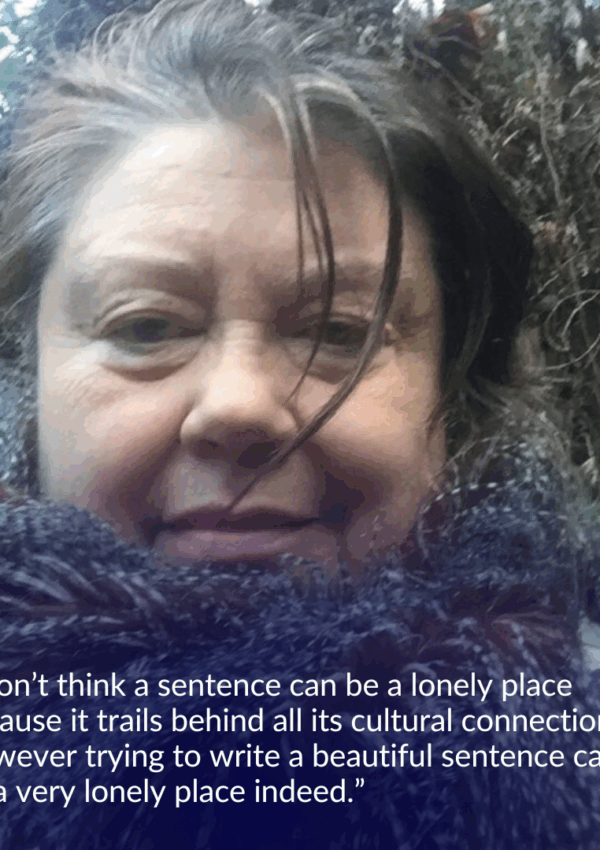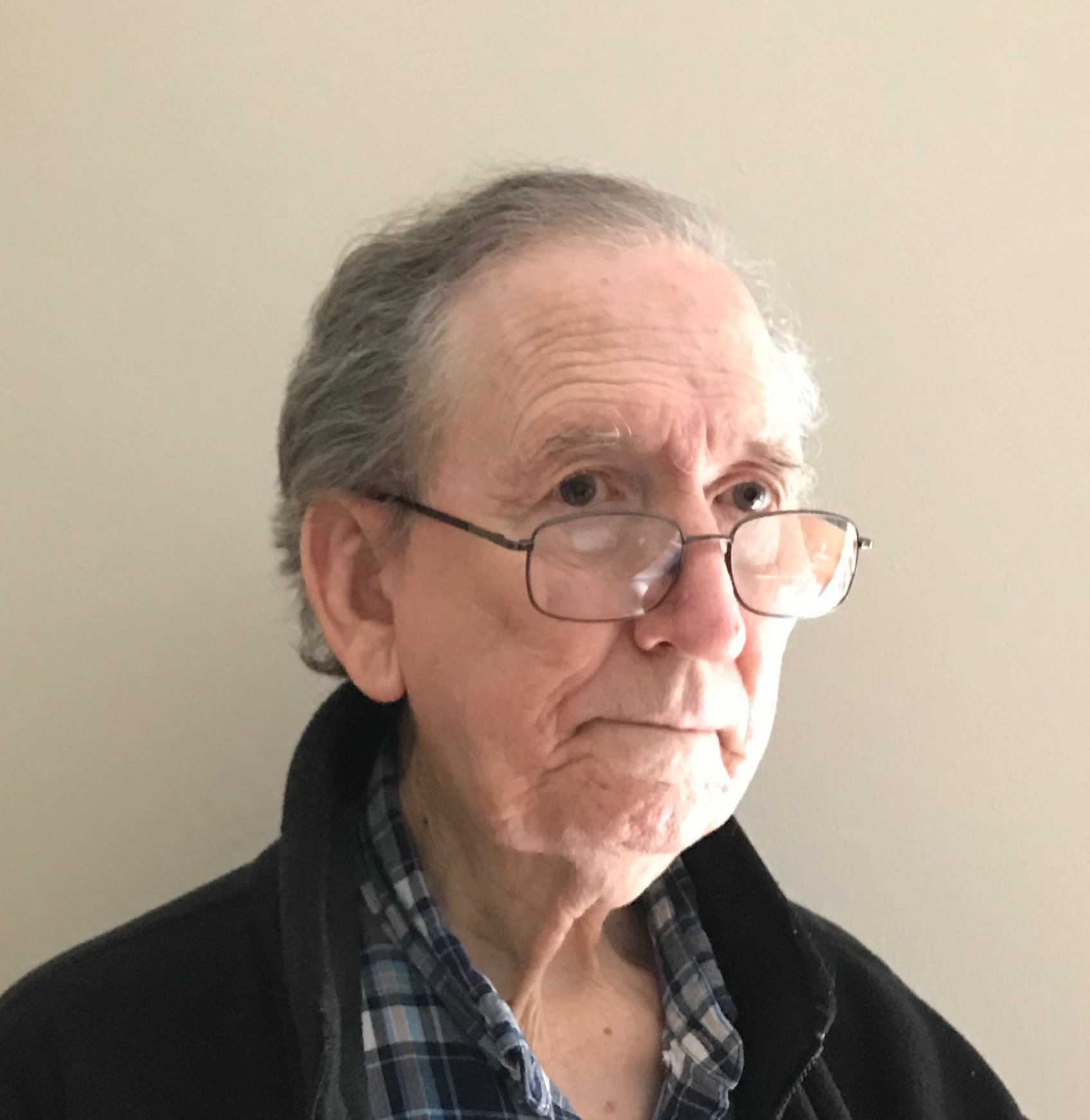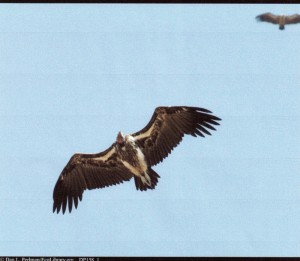 Movies are based on novels usually, but why shouldn’t it be the other way around?
Movies are based on novels usually, but why shouldn’t it be the other way around?
As an actor/writer I’d poured over other people’s scripts for years. I’d written stories and unfinished novels, and knew it was time to write this screenplay I’d been germinating for a while. Creature Storms could have been a novel or script first, but the visual possibilities were so eerily beautiful, I decided to write it for the camera first.
It was about three brothers trying to save a Tennessee mountain farm in the midst of raining snakes, frogs and fish; it was about warnings, signs, and visions.
I’m a visual writer anyway, inspired by the Polish born novelist, Joseph Conrad, who said, “My task which I am trying to achieve is, by the power of the written word, to make you hear, to make you feel-it is, above all, to make you see. That—and no more, and it is everything.”
I had the opening scenes for the movie, much of what would go down in the middle of it, and saw the apocalyptic ending so vividly I could’ve written it first. I decided to save up that energy to build and haunt me through the screenplay and unleash it at the end.
I wrote the fateful words Fade In and got down to work.
Reading over early scenes I’d written, I knew I was onto something — for myself anyway — which is essential for any creative work. Writing, like making a movie, should be a love affair: you must have a trembling attraction and excitement to tell your story, delve into it, and every act of love makes you that much more excited to find out what happens next.
The script was built in increments that seemed to materialize in my subconscious as I went along, as if I were being led, as if every day the well was being drained and each night filled up again. In day and night dreams the characters were speaking to me as plainly as the physical people in my life.
I knew them intimately; my characters were very alive in a parallel universe.
I knew what they were thinking, what they would say and how, what they wouldn’t. If I tried to force them to say or do anything against their will, I could feel them shaking their heads at me; the page would go cold. I had to be honest to and with them. I’d listen and they would begin to speak and the real words fall on the page again like the snakes and fish that were raining out of the sky.
There were hair-raising scenes, beautifully eerie scenes, love scenes, flashback dreams, brothers in conflict scenes, strong spiritual scenes, and it all flowed together in a soulful dance where every step was necessary and entangled the others. The story was already told, it felt like, and my characters — brothers from another place and time — were telling it back to me, telling it in the most personal imaginable terms, insisting I did them and their story justice.
I wrote the final scenes in an emotional, apocalyptic rush, and tediously began to rewrite it: cutting, tightening, bringing the camera into ever clearer focus. When it was done I was ecstatic. This was some kind of original but classic American movie. There were elements of the supernatural here, but also bizarre elements of the natural. The movie, set in 1986, referred back to Vietnam seventeen years earlier.
“Creature storms” are a documented occurrence all over the globe. They’ve been witnessed in the U.S., Great Britain, and pretty much everywhere else. They are not a fictional event, but still they carry the weight of the fantastic, part of my impetus for telling this story. Apparitions have also been documented and filmed, and in this story they are warnings of man-made things occurring and impending in the natural world.
I’d written this script originally for Oliver Stone, hoping he’d be interested in making it. I sent it to him through several channels, and a few months later was gratified to receive a phone message from his assistant: “Oliver thanks you for sending him your script, Creature Storms, he enjoyed reading it, but he’s already done his Vietnam trilogy, and is going to pass on it. He wishes you well with it.”
In interviews I’d heard Stone say that for years he couldn’t even get anyone to read his own scripts, before he was finally contracted to write The Hand. I appreciated that he bothered to get this message to me, knowing from having been there what it would mean to me.
After working on the script for over a year, I was now trying to find a filmmaker to make it. For six months I tried to contact other directors I saw making the film, who had the vision to bring these spirits alive on the screen. There were many directors who would do it justice. I sent it to Hollywood agents also, but couldn’t break through the gatekeepers.
I was having the same problem Oliver Stone had, just getting anyone to read my story. Are you kidding me? I’d busted my ass to make this screenplay perfectly what I wanted, seeing it as an immaculate, raw, compelling vision. I knew damn well it would make an extraordinary movie. Nobody will even read it? How would they know what’s there unless they did?
It was one thing to have people read it and say no thank you. I could deal with that, but this was ridiculous. I had little patience with the marketing side of things. I was a writer and actor who lived to create. Beating my head against the wall trying to sell and talk people into reading my script who weren’t interested, was mind-numbing drudgery I hadn’t even imagined.
But of course, I realized, that was a big part of the game.
I came across a book on getting your film script made. A chapter in it suggested writing the novel based on your script, and a light bulb went off. Filmmakers were looking for stories with deeply drawn characters, the book said, nuanced and carefully considered plot lines, which were found more in novels than original screenplays. One of the best ways to get directors to take a serious look at your script was to flesh out a novel based on it.
I pulled out my script and wrote the first chapter of the novel based on the first scene. Suddenly there was at the same time this infinite sense of pressure to do it justice again, with an infinite sense of freedom and the excitement that comes with being the God-like third person narrator who sees into your character’s thoughts, actions, fears and desires, who tells the story as the omniscient wandering eye.
At first I was hesitant to add to my story and characters, to change anything, but quickly realized the opportunity to see far more than I’d seen in the script, to develop them more and let them completely out of their cages. It was not so much about changing them, I realized, but about finding out more about them, going from one to the other seeing into their psyche’s, following their personal trains of thought. They became not only as real as they were in the script, but more humanly known in detail and discovered by me.
There were no rules, I realized, other than to make them authentically themselves in whatever they did and thought. This was my dream and property, I kept reminding myself, I can do whatever I want with it, as long as it’s genuinely them and their story. The script was not sacrosanct — the script was a perfect beginning, a very strong platform, an extremely elaborate outline even. I didn’t want to go off on too many tangents, but there were places in the script where more expository ventures were invited, were calling me to fill in the gaps, to deepen the story.
And, again, my characters seemed to be in collusion with me in telling their broader and more detailed underlying. It was like spending a great deal of time with someone you thought you knew well, and finding out so much more as you peeled off their layers like an onion. But still you know who they are and aren’t, and you stick to that also.
And then there was the challenge of visual descriptions, which now required great concentration of verbal observation, of witnessing vividly, which were at once painstaking and joyful to bring about. Seeing the visions and the endless revisions, coming back and back to moments and chapters and rewriting them with the pacing needed to make what I was trying to achieve as a filmmaker with prose rather than with the camera now. I realized I was seeing the story very much like watching the film I’d originally written, as Joseph Conrad said, “to make you hear, to make you feel-it is, above all, to make you see.”
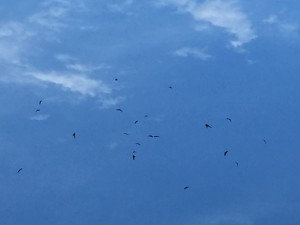 It was still a film, my words describing what I was seeing through the lens of my vision as a prose writer. My book Creature Storms became a very cinematic novel. And as I went along my standards for it continued to rise, so that I was never quite satisfied with certain scenes, particularly ripe, strange and dramatic scenes that carried weight. I was trying to create a certain magic on the page, where the reader was transfixed. I wanted a literary book that took you on a fantastic ride grounded in reality, and this took time.
It was still a film, my words describing what I was seeing through the lens of my vision as a prose writer. My book Creature Storms became a very cinematic novel. And as I went along my standards for it continued to rise, so that I was never quite satisfied with certain scenes, particularly ripe, strange and dramatic scenes that carried weight. I was trying to create a certain magic on the page, where the reader was transfixed. I wanted a literary book that took you on a fantastic ride grounded in reality, and this took time.
When I started it, I figured to have it done in two years at most. But I didn’t anticipate interruptions both personal and professional that would turn it into ten years. I’m an actor who makes his living auditioning and working in film, television, commercials, and voice overs, and so was pulled away from the work constantly. Then at about seven years, as I was deep into revisions, I knew I wanted this book to be exceptional, and kept pushing the envelope to take it there. I had a kind of horror of the book coming off as some hokey supernatural thing, rather than the intricate literary event I imagined. I rewrote endlessly to make it fully alive and real, and a serious literary work at the same time.
William Faulkner said, “You never really finish a novel, you only abandon it.”
In July of 2012 I did both, I hope, and published it. I’d spent an inordinate amount of time on it, but it was worth it, and I can still go there with the brothers in my daydreams, especially in strong storm weather. I went to novel boot camp writing Creature Storms, so that my next books can be written and completed much faster, what will seem I’m sure like overnight.
I sent a copy of the novel to other filmmakers whose work I admire, letting them know I have the screenplay written. I’m sure someone is going to come across this book and be bitten by the story and people walking off the page as I was, not be able to shake them, and have to put this on the screen.
Creature Storms, the movie, will be made sooner or later, and if not, I’ll make it myself. But either way the novel Creature Storms is a living, breathing entity, very much standing on its own, and the movie starts when the book is opened.
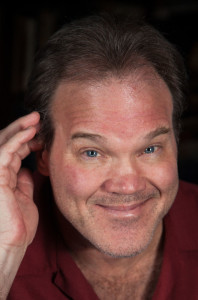 Ron Clinton Smith is a writer of poems, stories, songs, novels, and screenplays, and an actor who appeared in such films and TV as We Are Marshall, The Mist, Parental Guidance, True Detective, and Hidden Figures. He began his acting career in standup comedy, moved to theater, and later to film and television. In 2012 he published the literary novel, Creature Storms. His story, “A Pilgrimage to Dennis Hopper,” first appeared in the River Teeth Journal of Narrative Nonfiction, was nominated for the Pushcart Prize, and was listed as one of the most notable essays in Best American Essays, 2015. He’s published stories in Upstreet Magazine, Novella T, 2 Bridges Review, and Zoetic Press/NonBinary Review. He balances his time between writing and film acting.
Ron Clinton Smith is a writer of poems, stories, songs, novels, and screenplays, and an actor who appeared in such films and TV as We Are Marshall, The Mist, Parental Guidance, True Detective, and Hidden Figures. He began his acting career in standup comedy, moved to theater, and later to film and television. In 2012 he published the literary novel, Creature Storms. His story, “A Pilgrimage to Dennis Hopper,” first appeared in the River Teeth Journal of Narrative Nonfiction, was nominated for the Pushcart Prize, and was listed as one of the most notable essays in Best American Essays, 2015. He’s published stories in Upstreet Magazine, Novella T, 2 Bridges Review, and Zoetic Press/NonBinary Review. He balances his time between writing and film acting.


